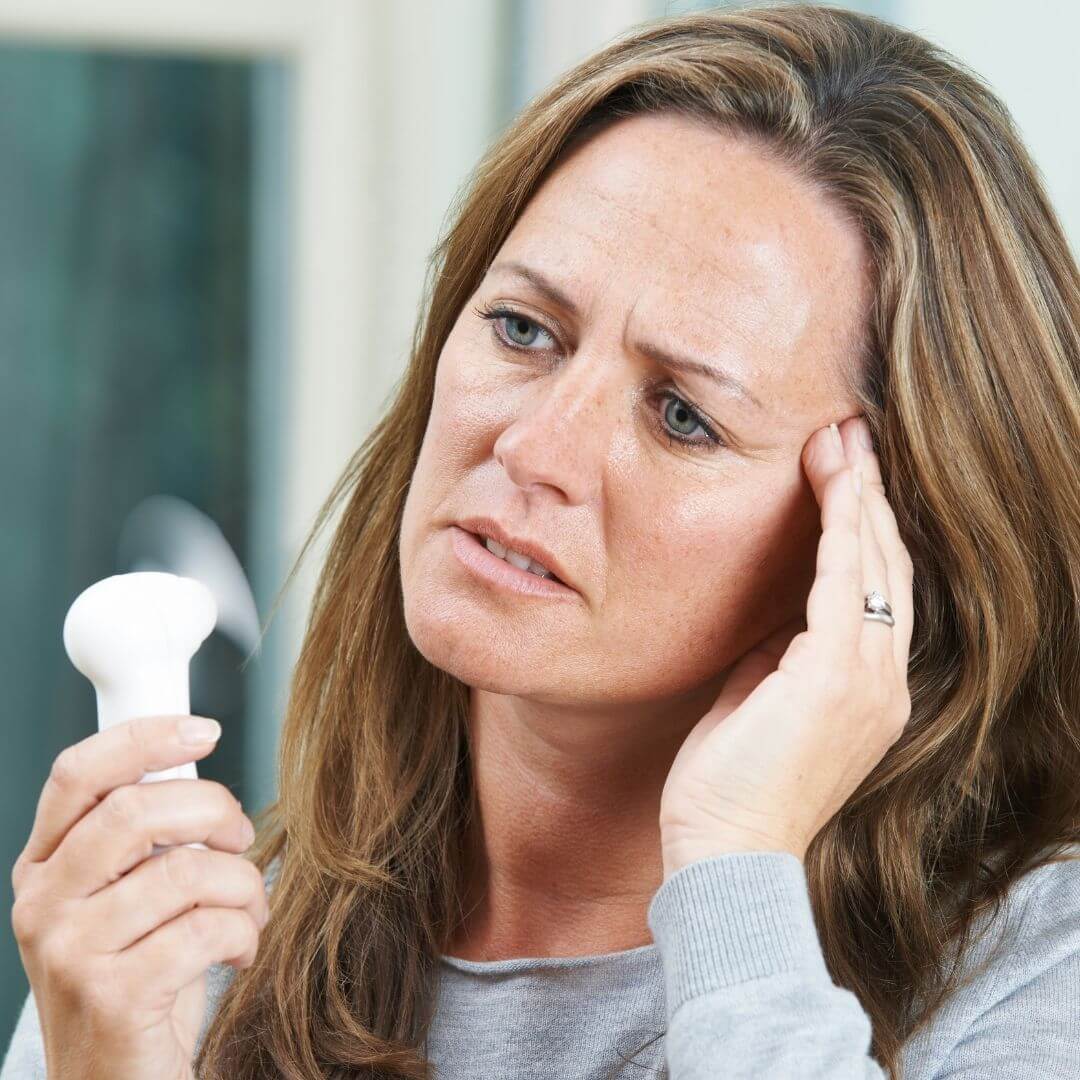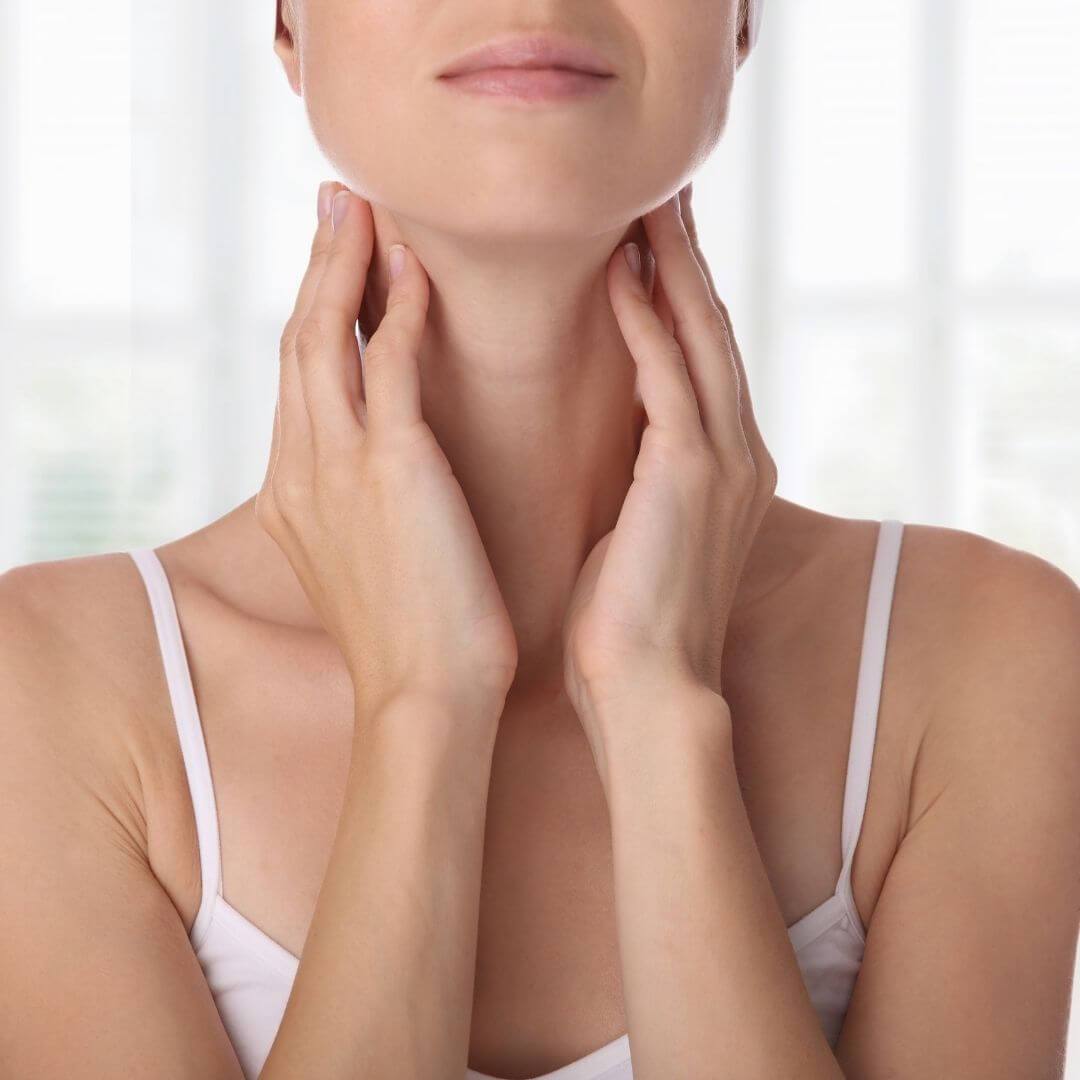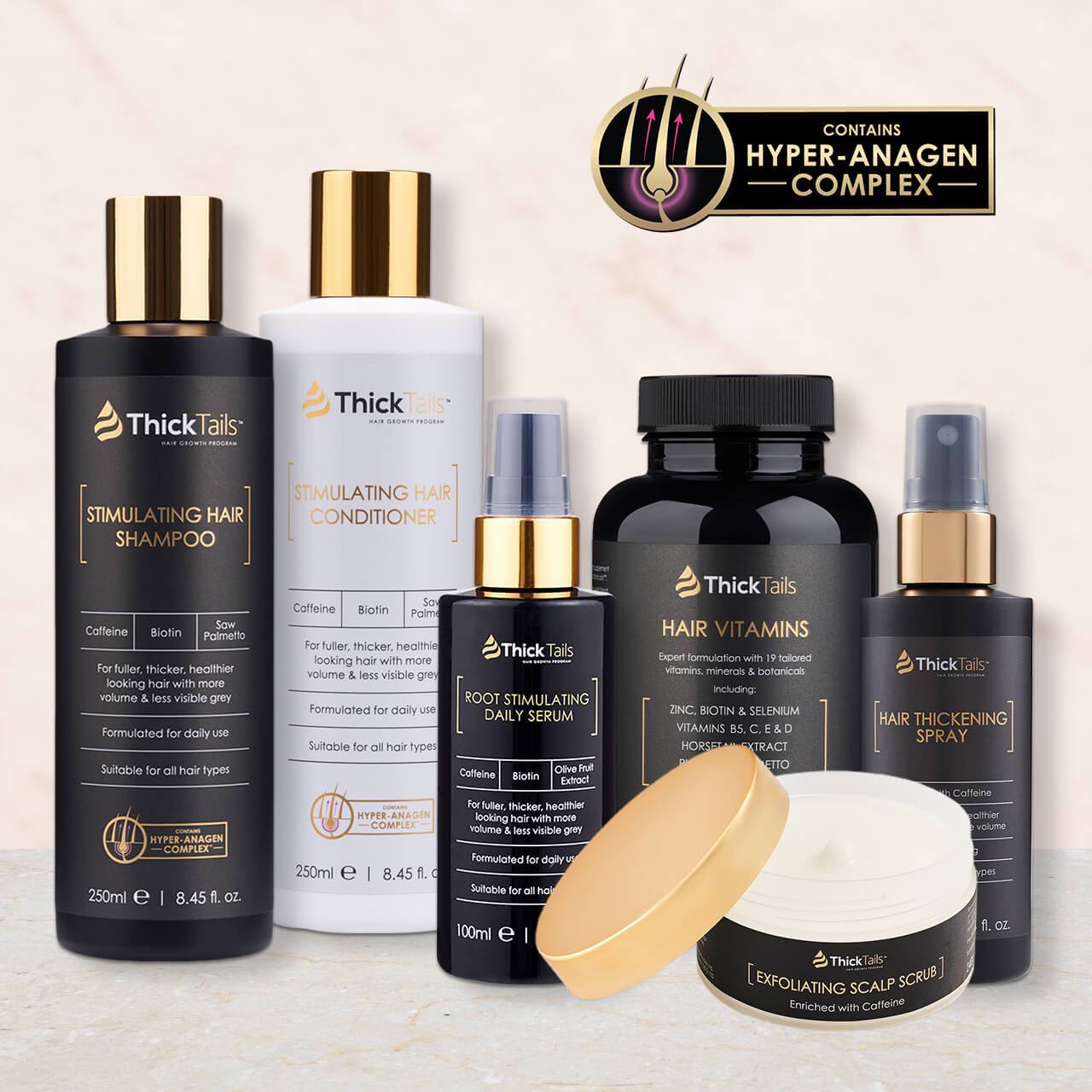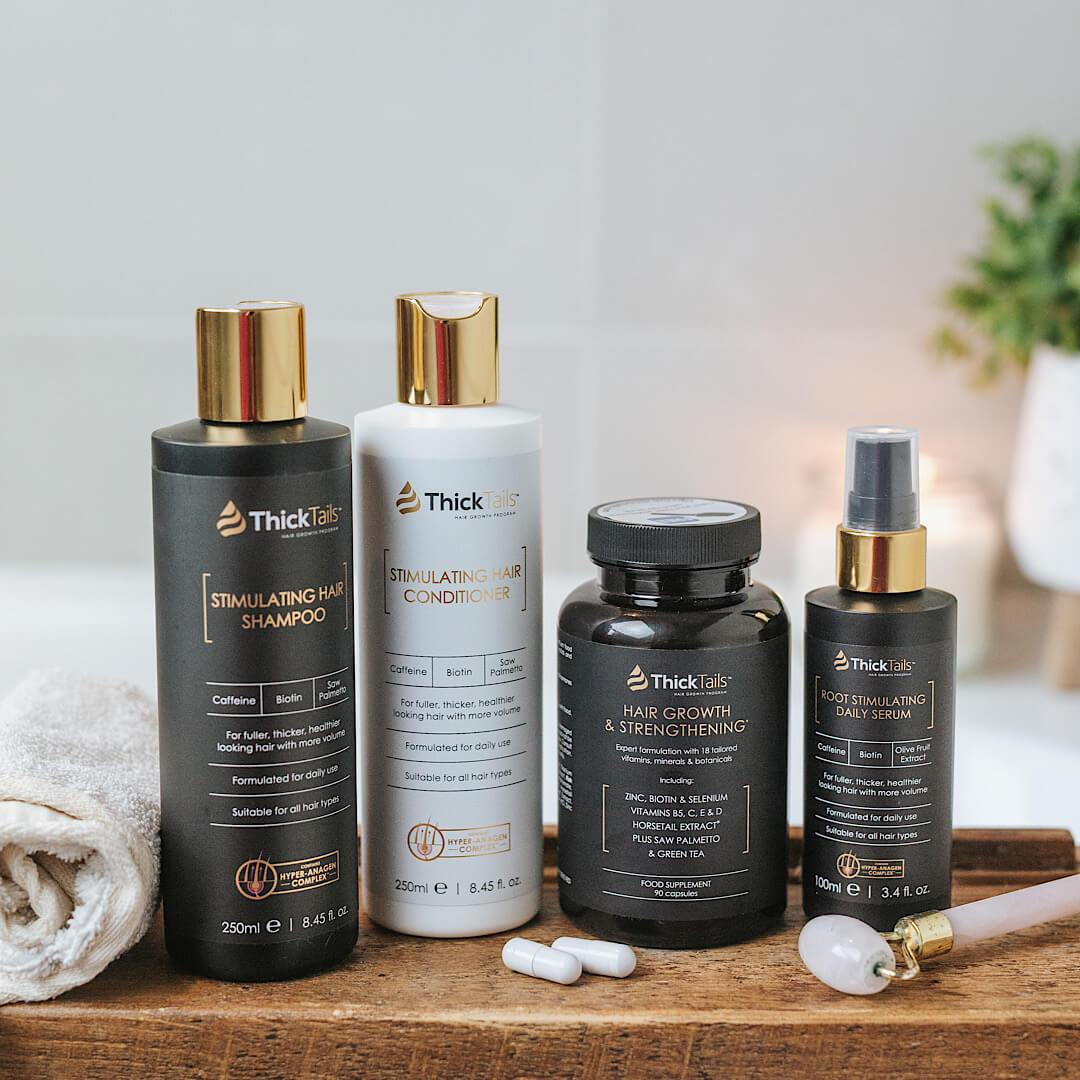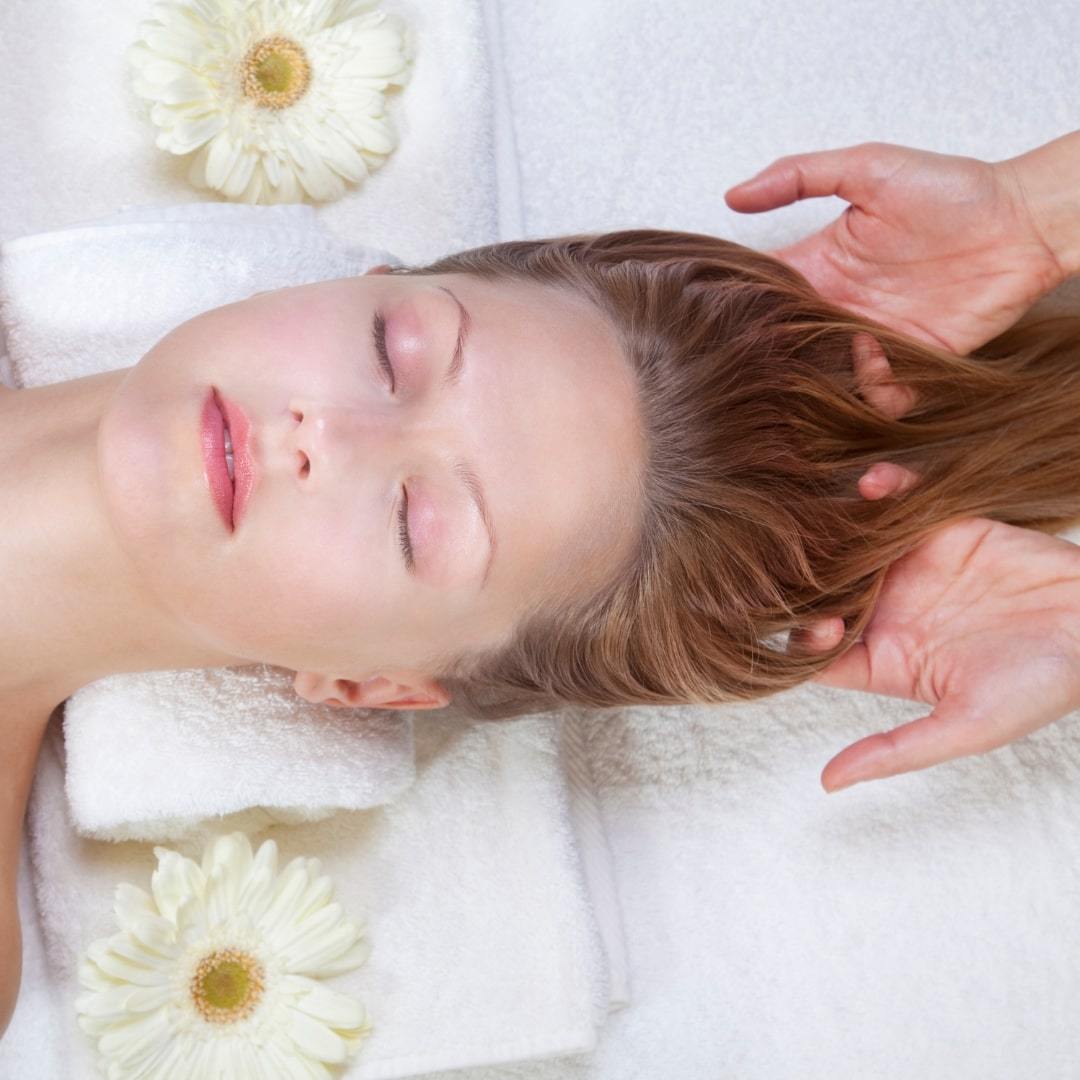Attention all men with hair loss problems! If you have been struggling with thinning or receding hair, then this blog post is for you. Hair loss is a common issue that affects millions of men worldwide and can lead to self-confidence issues and even emotional distress. While there are various causes for hair loss, one often overlooked culprit is iron deficiency. That's right – your lack of iron could be the reason behind your strands falling out at an alarming rate. In this educational post, we will delve into the connection between iron deficiency and hair loss in men, exploring its impact on your whole body as well as practical tips for addressing this issue. So sit back, grab a cup of coffee (or tea if you're feeling fancy), and let's get to the root of the problem together!
I. Understanding Iron Deficiency and Hair Loss in Men

Iron deficiency is a common health issue that many men face, leading to a wide range of symptoms, including hair loss. In order to understand its impact on our bodies, it's essential to recognize the importance of iron in our bloodstream, where it helps transport oxygen to all of our organs, including our hair follicles. Without sufficient iron, the hair growth cycle can be interrupted, leading to weaker strands and increased shedding. However, the good news is that with the right diagnosis and treatment, iron deficiency and hair loss can be effectively managed. It's important to consult with a healthcare professional to determine the best approach for your specific needs, but with a little know-how, it's possible to overcome this common issue and enjoy healthy, vibrant hair once again.
A. The Role of Iron in Hair Growth: Why It's Crucial
Iron plays a critical role in hair growth, making it an essential element for maintaining healthy and lustrous locks. This mineral is crucial for the production of hemoglobin, a protein that transports oxygen throughout our bodies. Without enough oxygen, our hair follicles cannot function properly, causing hair loss, dryness, and brittle strands. While iron deficiency is a common issue, it can be easily rectified by adding iron-rich foods to our diets like spinach, lentils, and red meat. If you're someone who struggles with hair loss or dull hair, incorporating more iron into your daily routine may be the key to achieving the thick and shiny locks you've been dreaming of.
B. How Iron Deficiency Leads to Hair Loss: The Biological Mechanisms
Iron deficiency is a common nutritional deficiency that can have significant consequences for the body. One particularly concerning effect is hair loss, which occurs as a result of several biological mechanisms. When the body lacks sufficient iron, it cannot produce enough hemoglobin – the protein that carries oxygen to the tissues – which can lead to a condition known as anemia. The hair follicles require adequate oxygen levels to function properly, and without it, they may enter a dormant phase and eventually fall out. Additionally, iron is involved in the synthesis of DNA, collagen, and other proteins that are essential for hair growth and maintenance. These biological mechanisms underline the importance of adequate iron intake in maintaining healthy hair growth, and highlight the need to identify and treat iron deficiency in those experiencing hair loss.
C. Common Causes of Iron Deficiency in Men: Diet, Lifestyle, and Health Issues
Iron deficiency is a common issue among men that can be caused by a variety of factors, including diet, lifestyle choices, and health issues. A poor diet lacking in iron-rich foods can lead to decreased iron levels in the body over time, as well as unhealthy lifestyle choices such as heavy alcohol consumption or smoking. Additionally, certain health issues such as gastrointestinal disorders or blood loss can also contribute to iron deficiency in men. This condition can have a variety of symptoms, including fatigue and weakness, shortness of breath, chest pain, and hair loss. It is important for men to understand the potential causes of iron deficiency and make changes to their lifestyle and diet in order to maintain optimal health.
II. Recognizing the Signs of Iron Deficiency
Iron deficiency is a common issue that can affect anyone, regardless of gender or age. However, it seems that men are less likely to recognize the signs of iron deficiency. One of the most common symptoms of iron deficiency is hair loss, which can be alarming for anyone. Other signs might include fatigue, weakness, and pale skin. It is important to recognize these symptoms and take action as soon as possible. Maintaining a balanced and nutritious diet is one of the simplest ways to prevent iron deficiency. Whether you're a man or a woman, it is always helpful to be aware of the signs of iron deficiency, and take steps to ensure you're taking proper care of your health.
A. Early Symptoms: What to Look for in Your Hair and Health
Early detection is key when it comes to addressing health issues. For men, experiencing hair loss could be an indicator of an underlying health condition. While it is natural for men's hair to thin out as they age, it is important to take note of sudden or rapid hair loss. Not only can this signal an issue with one's physical health, but it can also have an impact on one's mental well-being. Paying attention to your hair and overall health is critical to preventing more serious health issues down the line. By being proactive and staying informed about what to look for, you can take control of your health and well-being.
B. Medical Diagnosis: Tests and Consultations for Accurate Detection
Hair loss is a common condition among men that can often lead to frustration and embarrassment. While it may seem like a trivial concern, hair loss can actually be an indicator of more serious underlying medical conditions. To accurately diagnose the cause of hair loss, several tests and consultations may be necessary. Medical professionals may conduct a physical examination, blood tests, or a scalp biopsy to determine the cause of hair loss. Additionally, consultations with a dermatologist or trichologist can provide valuable insight into potential treatments and prevention methods. By undergoing proper diagnostic testing and consulting with trained medical professionals, men experiencing hair loss can gain a better understanding of their condition and take steps towards improving their overall health and wellbeing.
C. Differences Between Hair Loss Due to Iron Deficiency and Other Causes
Hair loss is a common issue that affects both men and women, but understanding the underlying cause can often be a challenge. When it comes to hair loss due to iron deficiency, there are some key differences to keep in mind. This type of hair loss is typically characterized by thinning hair all over the scalp, rather than in specific areas. Additionally, those experiencing hair loss due to iron deficiency may also notice brittle nails, fatigue, and pallor. It's important to recognize the signs and symptoms of iron deficiency in order to properly treat and manage hair loss. By addressing any underlying health issues related to iron levels, individuals can work towards regaining a healthy head of hair.
III. Addressing Iron Deficiency to Promote Hair Growth

Iron deficiency is a common problem that can lead to hair loss, especially in men. When our bodies lack iron, it can cause the hair follicles to become weak and brittle, leading to hair breakage and thinning. Fortunately, there are steps that can be taken to address this issue and promote healthy hair growth. Eating a diet rich in iron, such as red meat, spinach, and lentils, is one way to increase iron levels in the body. Additionally, taking iron supplements as recommended by a healthcare professional can also help to address iron deficiency. By taking such actions, men can help take control of their hair loss and promote fuller, healthier hair.
A. Iron-Rich Foods and Supplements: Boosting Your Intake
Iron deficiency is a common issue that plagues both men and women. If left unchecked, it can lead to a number of problems, including hair loss. Fortunately, there are a variety of iron-rich foods and supplements that men can incorporate into their diets in order to maintain healthy iron levels and prevent hair loss. Some great sources of dietary iron include red meat, leafy greens, legumes, and fortified cereals. Supplements can also be effective, but it's important to speak with a healthcare professional before starting any new regimen. Taking the steps to boost your iron intake can not only help prevent hair loss, but can also lead to improved energy levels and overall health.
B. Lifestyle Changes: Improving Absorption and Overall Health
As men navigate adulthood, they may experience a variety of health concerns that can affect their daily lives. One common issue that affects men, in particular, is hair loss. While genetics and age play a significant role, lifestyle changes can also impact hair growth and overall health. By improving absorption through a balanced diet and exercise routine, men can take proactive steps to improve their overall health and potentially reduce the risk of hair loss. Focusing on nutrient-rich foods, such as fruits and vegetables, can help increase absorption of important vitamins and minerals needed for hair growth and overall health. Coupled with regular exercise, these lifestyle changes can help men improve their absorption, maintain a healthy weight, and boost their immune system.
C. Monitoring Progress: Ensuring Effective Treatment
As men age, it is common to experience hair loss. While it can be a natural part of the aging process, it can also be a symptom of an underlying medical condition. It is important to monitor the progress of hair loss and seek effective treatment options to address the underlying cause. Regular check-ins with a medical professional can help ensure that the chosen treatment is effective and not causing any additional complications. With proper monitoring and treatment, it is possible to slow down or even reverse hair loss in men. Take charge of your hair health by seeking out the proper medical attention and treatment needed.
IV. Additional Steps to Improve Hair Health
Hair loss is a common concern among men, but it doesn't have to be a permanent one. In addition to choosing the right hair products, there are additional steps you can take to improve your hair health. One key step is to maintain a balanced and healthy diet, as nutrition plays a significant role in hair growth. Consuming foods rich in vitamins, minerals, and protein can strengthen hair follicles and promote healthy hair growth. Additionally, reducing stress through exercise and meditation can help prevent hair loss. By taking these extra steps, you can ensure that your hair looks and feels its best.
A. Choosing the Right Shampoo and Conditioner for Your Hair Type
Choosing the right shampoo and conditioner for your hair type is crucial to maintaining healthy locks. This is especially important for men who may be experiencing hair loss. It's important to consider factors such as your hair type, scalp condition, and any specific hair concerns you may have when selecting your hair care products. Using the wrong shampoo or conditioner can actually worsen hair loss or scalp irritation. By educating yourself on the ingredients that work best for your hair type and reading product labels, you can make informed choices and keep your hair looking its best. Remember, a little research goes a long way when it comes to hair care.
B. The Benefits of Using Hair Growth Serums: What to Look For
Hair loss among men is a common phenomenon that can be a source of concern for many. Fortunately, advances in technology have made it easier to combat this issue with the use of hair growth serums. Hair serums come in different types and concentrations, which can make it difficult for a first-time user to know what to look for. Thus, it is essential to know what to consider when looking for the right serum. When picking a serum, look for ingredients such as biotin, saw palmetto, and caffeine as they stimulate hair growth. Also, consider concentrating on serums that contain natural ingredients as opposed to those that are chemical-based. Utilizing the right hair growth serum can help restore the confidence that hair loss may have taken away.
C. Incorporating Supplements and a Balanced Diet for Optimal Hair Health
Losing your hair can be a traumatic experience, regardless of gender. Many men struggle with hair loss at some point in their lives, but there are ways to promote optimal hair health. One key component is incorporating supplements and a balanced diet into your routine. Ensuring that your body is receiving the proper nutrients, such as iron, can help combat deficiencies that can contribute to hair loss. A varied diet, including foods such as leafy greens, nuts, and fish, can also aid in maintaining healthy hair. With the right combination of supplements and a balanced diet, you can take proactive steps to promote the health of your hair.
In conclusion, understanding the role of iron deficiency in hair loss is crucial for men who are experiencing this common issue. By recognizing the signs and addressing it through proper nutrition and lifestyle changes, iron deficiency can be managed and hair growth can be promoted. It's important to pay attention to early symptoms and seek medical diagnosis for accurate detection. Incorporating iron-rich foods and supplements, as well as choosing the right shampoo and conditioner for your hair type, can greatly improve overall hair health. And don't forget the benefits of using a quality hair growth serum! Remember to also incorporate a balanced diet and consider adding supplements to ensure optimal hair health. Don't let iron deficiency stand in the way of luscious locks any longer - take action today with these simple steps! Your hair will thank you for it. So why wait? Start taking care of your hair now by incorporating these tips into your routine, because every man deserves healthy and luxurious locks that boost their self-confidence. Say goodbye to hair loss due to iron deficiency and hello to a head full of healthy, strong strands - all with just a few simple changes. So start being proactive about your hair health today, starting with investing in a quality shampoo and conditioner as well as a trusted hair serum for greater results. Here's to happy, healthy hair!

